10 Lessons to Learn From Adult Children of Emotionally Immature Parents
Like it or not, adult children of emotionally immature parents learned a thing or two. If these lessons sound familiar, we have news.
When we’re kids, our parents seem invincible and infallible. I remember arguing with my teacher about how to pronounce a couple of spelling words because I couldn’t imagine that my mom would ever be incorrect. She was my mom. She had it all figured out … didn’t she?
Even through my contentious teen years, it never occurred to me that there might be a reason my mom was the way that she was. In her case, she lost her own mom when she was only 16. It influenced her own parenting without either of us realizing it. Now that I’m a parent, though, I’m doing my best to check myself. Adult children of emotionally immature parents often continue the cycle. I’m not having it, and you shouldn’t either.
Processing complex family dynamics and working to repair them takes time, but these powerful lessons are a good place to start.
1. You’re Not Responsible for the Emotions of Others
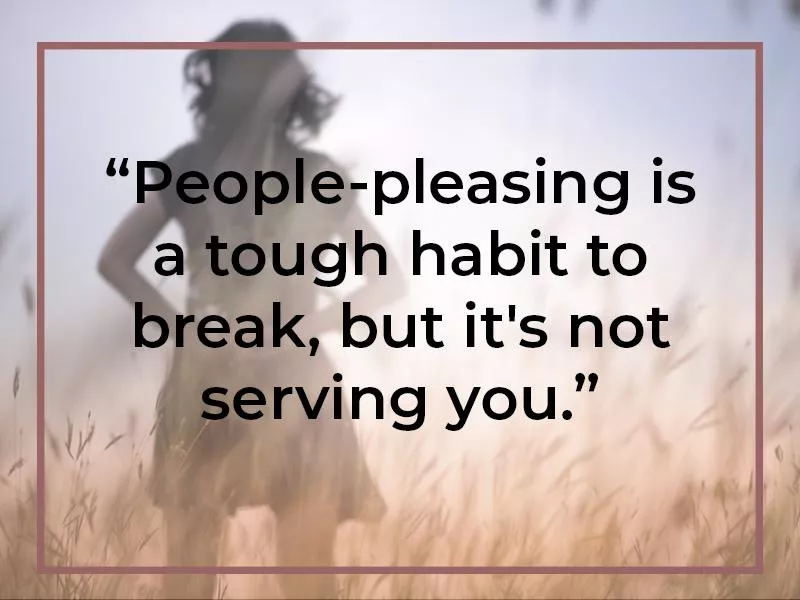
I don’t know about you, but when someone is storming around the house looking like they hate the world, I want to leave. Even if the person’s mood has nothing to do with you, it feels like it does. When you’re a kid, leaving isn’t an option, and it’s common for kids to feel like no matter what they do, they can’t make their parents happy. That’s what it feels like when you grow up with an emotionally immature parent.
There are different types of emotionally immature parents. Passive ones are too stressed out and overwhelmed to engage. Driven ones are so busy, they simply never have time for it. Emotional parents are too focused on their own crap to care for others. Rejecting parents push their kids away, ignoring their child’s bids for attention or only responding with criticism.
Whichever type of emotionally immature parent you had, being on the receiving end of that kind of treatment sucks. You do feel responsible for keeping everyone happy, but guess what? It was never your problem, and it still isn’t. People-pleasing is a tough habit to break, but it’s not serving you. It doesn’t even work, so stop it. The next time your mom tries guilt-tripping, gaslighting or dramatic generalizations, don’t apologize. Stay calm, stand your ground kindly, and relish the fact that you can now get in your own car and drive away.
2. Not Reacting Is Powerful

Speaking of confrontations, choosing not to react is borderline magical. Whether you’re talking to your emotionally immature parent, or your emotionally immature toddler, not responding to yelling or unkind words works.
It takes two people to fight, and it’s kind of amusing to see how people respond when you straight-up refuse to get mad. “The way you’re talking to me right now isn’t kind. I want to work through this together, but we can’t do that until you stop raising your voice.”
First, they yell more. They might storm off or assume you’re being condescending. Eventually, they might come around. Weirdly, this is way easier with toddlers than with adult parents.
3. Hurt People Hurt People
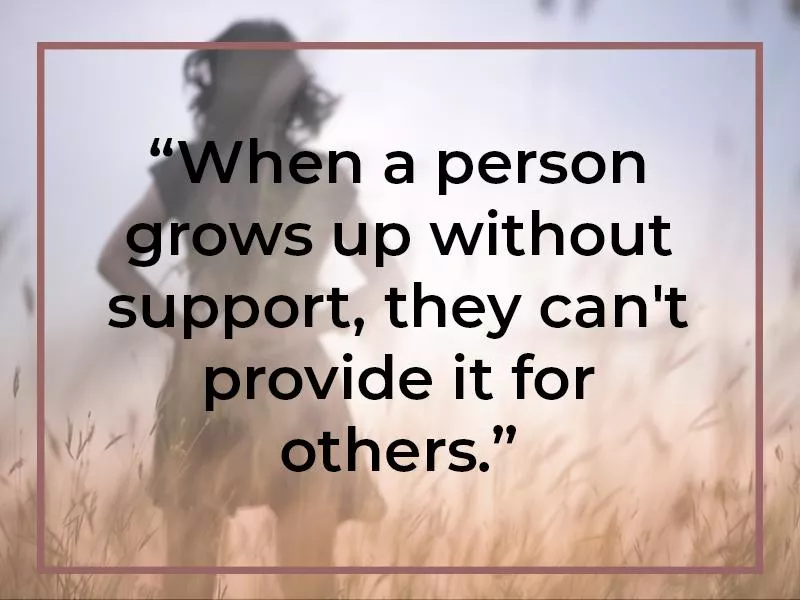
This phrase is oversaid, but it’s spot on. If a parent dealt with some type of trauma earlier in their life, whether from their own parents, another family member or an unhealthy relationship with a partner, it’s all too common for them to unintentionally take it out on their kids. It’s not malicious. When a person grows up without support, they can’t provide it for others.
Which means, ugh. If you, like me, are in the adult-children-of-emotionally-immature-parents club, it’s important to deal with your own s**t. If you don’t, you might catch yourself falling short with your own kids in a way that’s disturbingly familiar. Funny how that works. Therapy isn’t for everyone, but if you find yourself repeating not-so-great patterns, give it a try. It probably won’t stop your kids from talking about you in their own therapy sessions a few decades from now, but hey, it’s worth a shot.
4. Don’t Use Anger Like a Mask
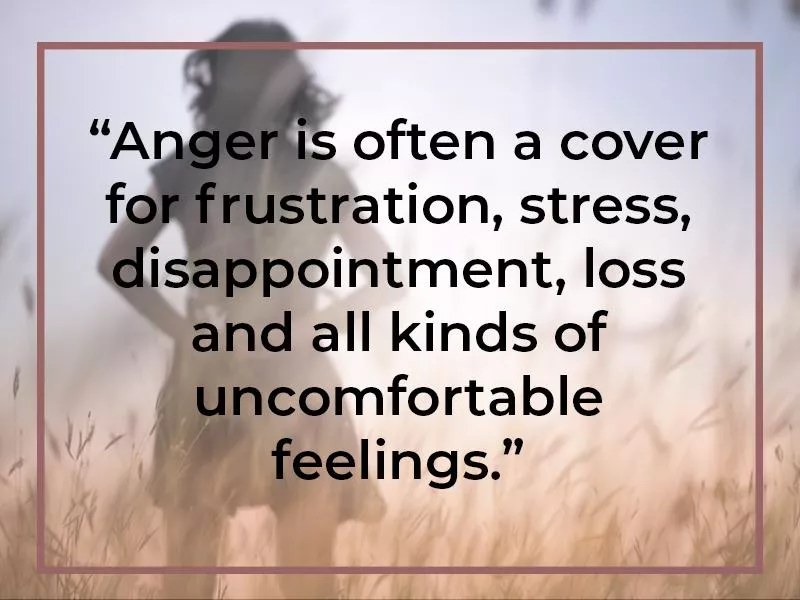
As I mentioned, there are different types of emotionally unavailable parents. Not every type reacts with anger, but it’s not uncommon for people to react with anger because they don’t know how to express a deeper emotion. It’s easier to shout at someone rather than to tell them, “Hey, what you said earlier really hurt. Did you mean that?”
Anger is often a cover for frustration, stress, disappointment, loss and all kinds of uncomfortable feelings. If your parent often seemed angry, there was probably a reason for it that had nothing to do with you. Because, like I said, you were never responsible for their feelings from the get-go.
Now that you’re able to see it all from a distance, turn your gaze inward. If you feel angry, let it simmer for a while. Once the rage boils away, there’s probably another emotion or two at the bottom of the pot. Feel those, share them if you need to, and then go get some fro-yo.
5. Don’t Use Defensiveness Like a Shield, Either
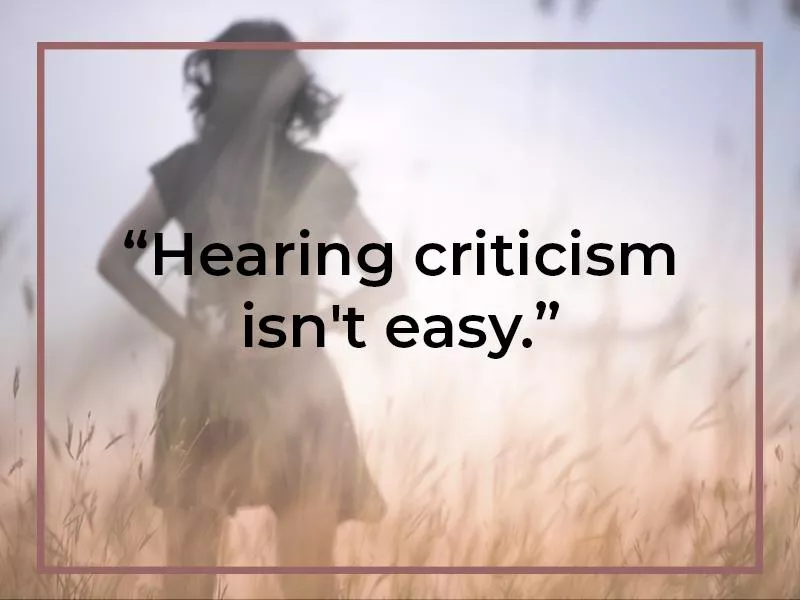
Have you ever mentioned one minor, negative element of your childhood to your parent, only to hear something like, “Oh, so I guess your entire childhood was awful? Sorry for being such a terrible mother!”
Yeah, same, and it’s bull. Hearing criticism isn’t easy, but if someone is expressing how you’ve made them feel, hear them out. Just making a mistake doesn’t make you a terrible friend, partner or parent. Refusing to learn from it, well…
Just kidding. Mostly. It’s uncomfortable, but ditch the defensive reaction. Unless your goal is to put up so many walls that you can’t connect with anyone at all, in which case, keep it.
6. You Don’t Have to Be Mean or Angry to Cause Harm
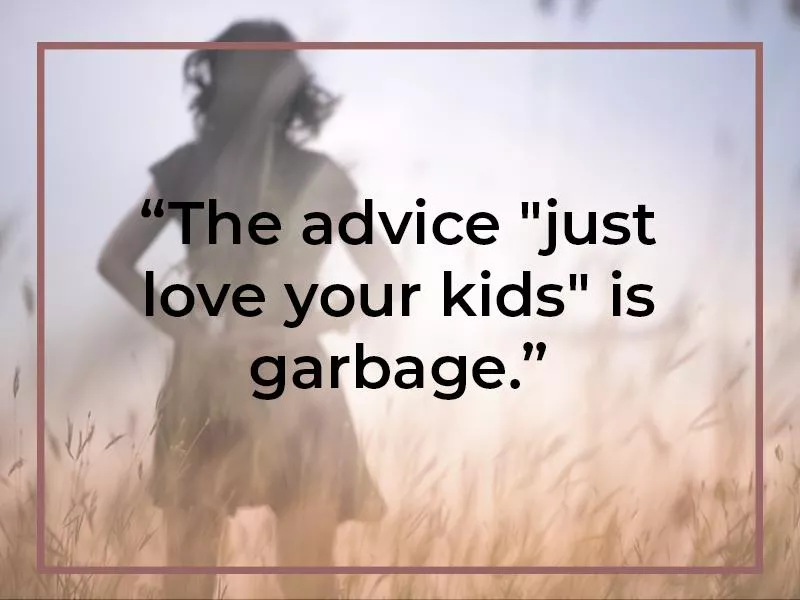
Harshly critical and manipulative parents are easy to spot, but that’s far from the only way that emotionally immature parents can cause harm. Kids rely on their parents for security, wisdom, and guidance. Adult children of emotionally immature parents often missed out on that.
Some parents treat their kids like free therapists, venting about problems no kid is equipped to understand. Other parents just aren’t there. They’re physically present, but emotionally, they’re not available to connect. The advice “just love your kids” is garbage because you can love them and still fail to show it in the way they actually need. If you don’t have kids yet, have you considered just getting a dog? Because most of your mistakes with them can be erased with a game of fetch and a piece of cheese.
7. Don’t Just Listen to Children: Hear Them
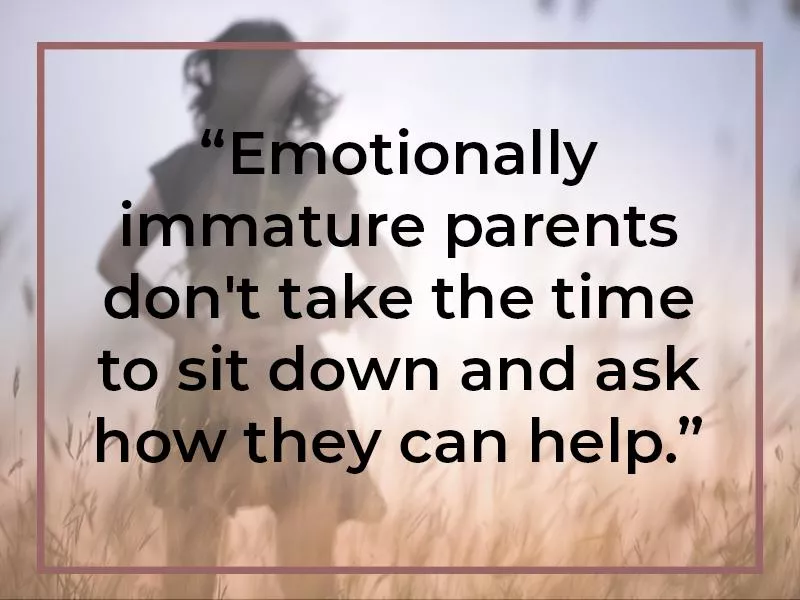
My mom doesn’t own a laptop and still uses AOL, so I’m guessing she won’t see this. Growing up, my mom tried to listen to me. She wanted nothing but the best for me, but she didn’t hear what I really needed from her. It wasn’t perfect grades, the best school, new clothes or anything else like that. I didn’t need perfect anything. I needed to be enough. More than anything, I wanted to know that she’d still like me if I didn’t get that A in AP French. She didn’t know how to show me that.
If you’re reading this, Mom, I love you, and I don’t blame you in the slightest. I didn’t make it easy, but that’s the point. Kids don’t always have the words to tell you what they need. Emotionally immature parents don’t usually take the time to sit down, hug their kid and genuinely ask how they can help. For the next generation, I vote we change that.
8. Being Close With Your Kids Takes Guts
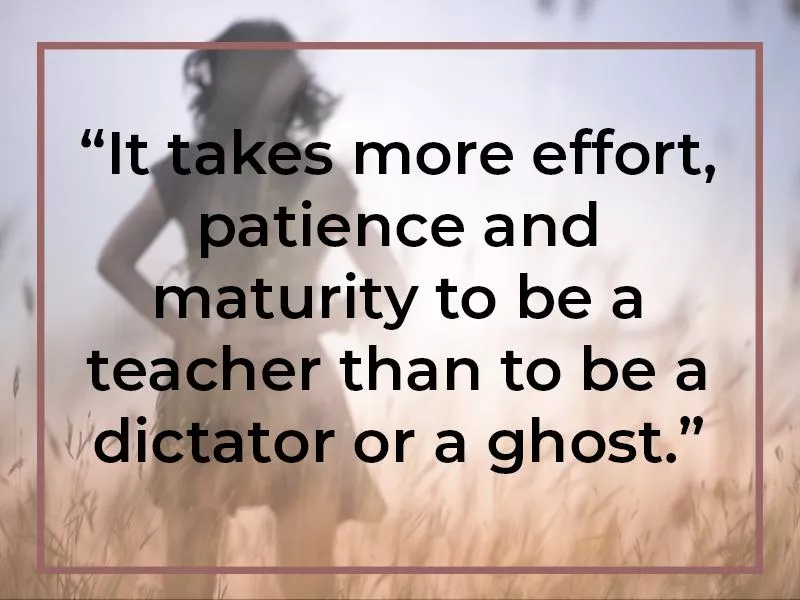
That brings me to my next point. Parenting is scary to begin with, but it’s extra scary when you realize that your kid is turning into an actual person. At first, you just have to keep them alive and teach them not to bite people. That part’s easy. Then, you have to help them become upstanding, successful, well-adjusted members of society. Doing that requires having mutual trust and respect. You know, like any other relationship.
With emotionally immature parents, that’s where it all goes wrong. It takes more effort, patience and maturity to be a teacher than to be a dictator or a ghost. Kids, particularly teens, tend to throw your effort back in your face. Unlike your own emotionally stunted parents, however, you can take it. For sure. Hopefully. I slipped on an LOL doll on the stairs last night and told it to go to hell, so I’d say I’m still working on it.
9. You Can’t Trust Others Until You Trust Yourself First
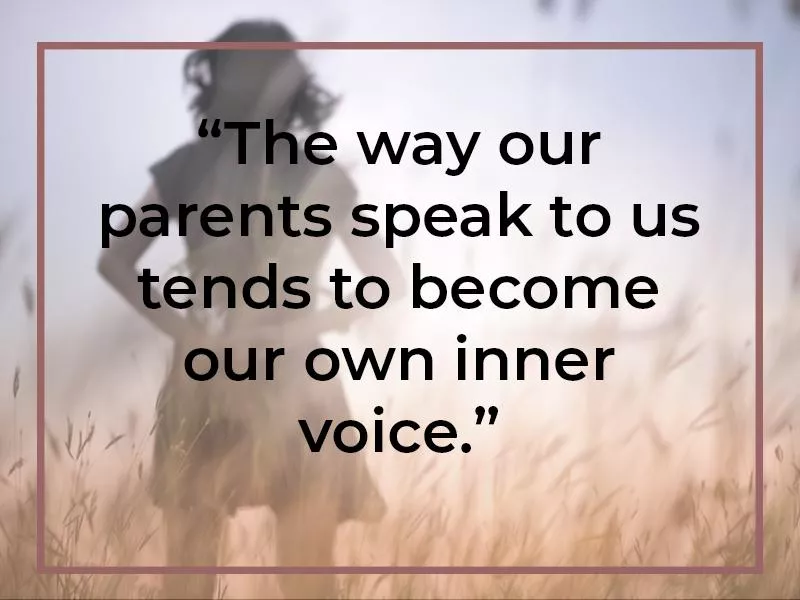
Emotionally immature parents can be withdrawn, guarded, suspicious, accusatory and about a million other things that shout, “I don’t trust you.” When you’re a kid, you don’t get what you did to lose their trust. Most of the time, you didn’t do anything.
Most people have baggage, parents included. Parents are supposed to give their kids unconditional love, encouragement and respect. The way our parents speak to us tends to become our own inner voice. If that voice was unkind, or absent altogether, it’s hard to know what to believe about ourselves. That makes it difficult to self-reflect and accept responsibility for our mistakes.
It would be great if we could work on that for our own parents, but all we can really do is develop realistic expectations for the level of relationship they’re capable of sharing. That, and work on our relationship with ourselves. Does trusting myself to only eat half a bag of Oreos in one sitting instead of the whole thing count for something?
10. Healing Requires Risk and an Open Mind. It’s Also a Choice.
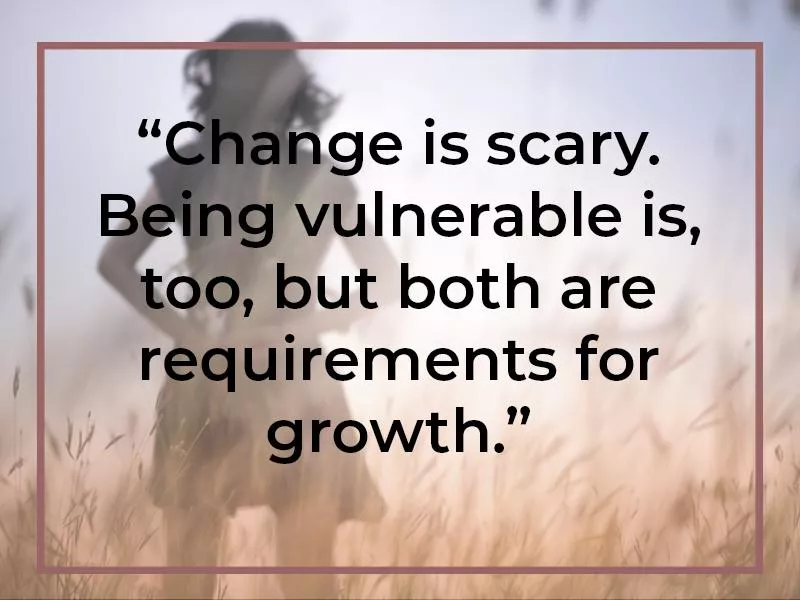
Change is scary. Being vulnerable is, too, but both are requirements for growth. I mean, a flower bud has no idea what’ll happen once it breaks through the soil. Getting stepped on and instantly crushed is possible, so plenty of emotionally immature parents decide to remain safely underground.
As their kids, we have a choice. For my part, I elected to grow anyway. Not quite sure if I’ve bloomed yet. I’ve definitely been rained on a few times, and some of my leaves came in weird, but it sure as hell beats living in the dark.